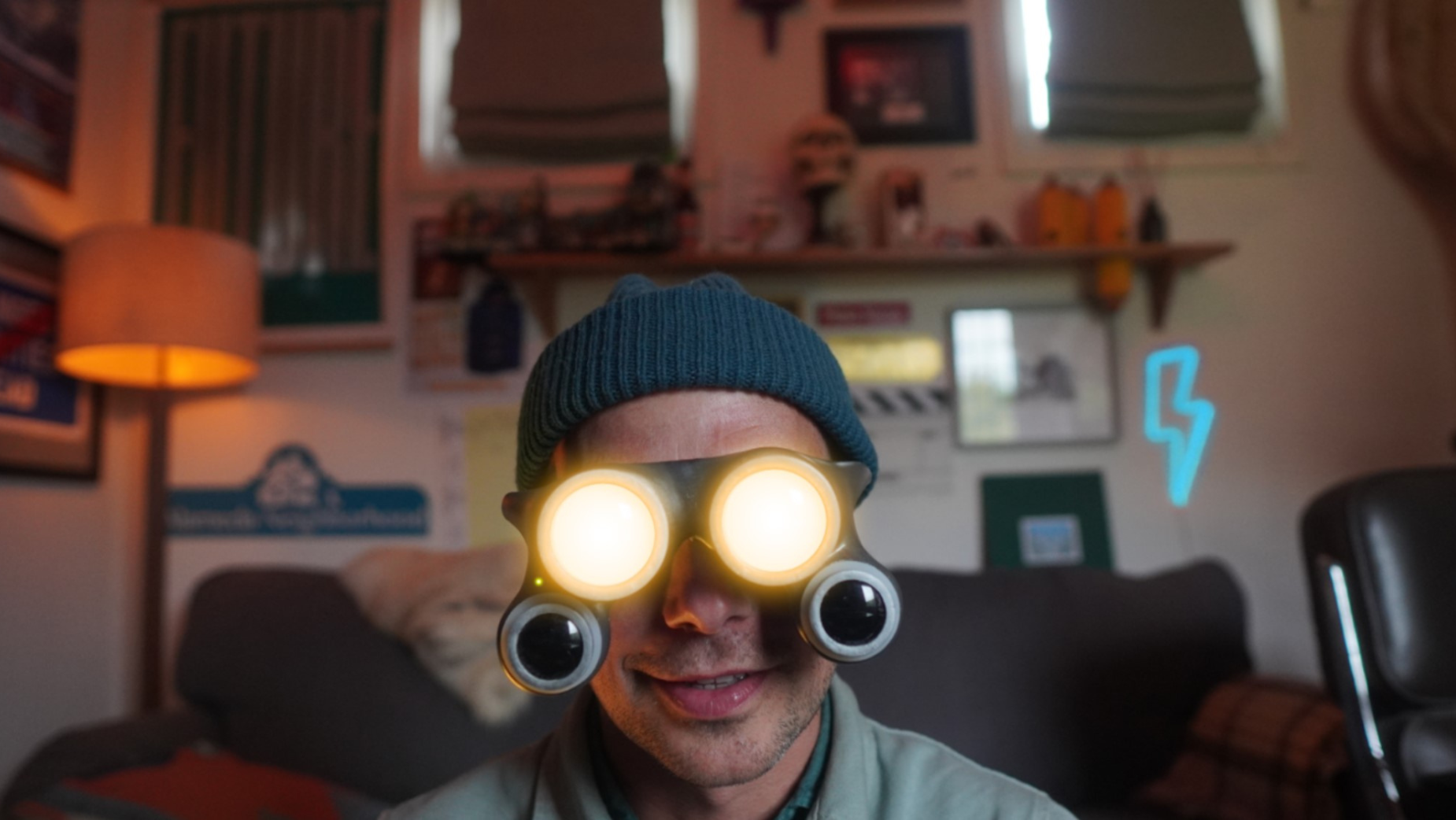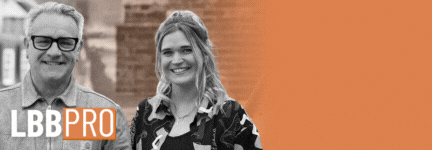
The Directors: Freddie Powell

Freddie Powell spent 15 years moving through Wieden + Kennedy’s offices creating and overseeing the most lauded work in the network, including Nike’s 'Write the Future' out of London and KFC’s hot steak of famous work out of Portland.
Now directing, Freddie brings his signature energy and playfulness to everything he points the camera at. His childlike way of seeing the world combined with his unrivalled level of craft gives the work a unique quality that’s hard to find. Freddie pours his heart and soul into every frame. His signature style oozes with energy, love and craft.
He co-founded DROOL in 2020 with the intention of staying small and focusing on better. DROOL is a collection of the best creative minds and the place where ideas are pushed and sharpened to be the best they can be.
Name: Freddie Powell
Location: UK and USA
Repped by/in: DROOL globally
LBB> What elements of a script sets one apart from the other and what sort of scripts get you excited to shoot them?
Freddie> The thing that gets me really excited is the people who wrote the script. I ADORE working with smart people who push the work at every stage. When I find out that ‘x’ agency and ‘y’ are the creatives, I think to myself, ‘Sweet! I’ll have like-minded comrades in the bunker always pushing for better!’.

LBB> How do you approach creating a treatment for a spot?
Freddie> I have an immediate read and ask, "could I make this great?". If the answer is "Yes, maybe", then I take 24 hours to figure out a very rough angle at it. Then we let the agency know I’m IN. I float that ‘angle’ with the agency on the initial call. Hopefully it goes well.
Then I spend 36 hours writing the script in detail with all camera moves, character ideas and references. I’ll offload that on to the team at DROOL and we divide up the legwork in bringing that vision to life. We’ll start trawling for images and references. I’ll start doing drawings and doodles, test shots, videos and animatics. Producers start producing numbers and production approaches.
Then we start pulling it all back together into a tight, cohesive treatment. The amount of work that goes into one of our treatments is obscene but we are extremely proud of the love and craft we put into everything at DROOL.
LBB> If the script is for a brand that you're not familiar with/ don’t have a big affinity with or a market you're new to, how important is it for you to do research and understand that strategic and contextual side of the ad? If it’s important to you, how do you do it?
Freddie> The wider DROOL team and myself do a quick research to check the brand and people aren’t at odds with our own values, and it counts for a great deal when it’s a brand or cause that we love. But I purposefully like to keep a bit of a distance. If I know a lot about the brand it can be helpful in selling stuff through, but on the flipside it can be better to let the agency do their thing and protect you from the politics.
LBB> For you, what is the most important working relationship for a director to have with another person in making an ad? And why?
Freddie> I’m gonna lump the director and his/her producer into one person (because that relationship is crucial). Apart from that, the relationship between the agency creatives and the director is paramount. I like finding creatives who are constructive, rather than destructive with feedback. Creatives who have great ideas and love sharing them. Creatives who protect the work from folks playing it safe.
LBB> What type of work are you most passionate about - is there a particular genre or subject matter or style you are most drawn to?
Freddie> At a party, you can find me at the kids table. Probably doing magic tricks. I just get on better with kids than grown ups. Kids = joy. I’m dying to shoot more kid related stuff, with some visual magic folded in for good measure.

LBB> What misconception about you or your work do you most often encounter and why is it wrong?
Freddie> I think people assume because you’re not with a big traditional production company you’re somehow less acclaimed. Early on, Gen [Sheppard] and I had every production company under the sun try to scoop us into their roster but the reality is, bigger rarely equals better. We set up DROOL with the intention of staying small and focusing on better.
LBB> Have you ever worked with a cost consultant and if so how have your experiences been?
Freddie> ‘This ain’t mathematics. It’s jazz’. - Dan Wieden.
LBB> What’s the craziest problem you’ve come across in the course of a production – and how did you solve it?
Freddie> We once drove up to our approved location in a quarry and they had quite literally BLOWN IT UP. WITH EXPLOSIVES. I wish there was some super-cool, creative pivot but in reality an insurance person in a brown suit paid to fix it in post. Not all heroes wear capes.

LBB> How do you strike the balance between being open/collaborative with the agency and brand client while also protecting the idea?
Freddie> In short, I don’t try to strike a balance. I just ask ‘why?’ a LOT. It drives my producers mad. But unless I understand the reasons behind certain desires or requests then production just becomes a service rather than an art form.
LBB> What are your thoughts on opening up the production world to a more diverse pool of talent? Are you open to mentoring and apprenticeships on set?
Freddie> This seems like one of those questions Delta asks you on your arrival form: ‘are you a terrorist!?’. Fortunately, I’m very proud to say that DROOL is a majority female owned company that has female majority employment and I personally mentor the brilliant director Tiffany Whitney Chang, a badass, young, Asian woman with a killer eye.

LBB> How do you feel the pandemic is going to influence the way you work into the longer term? Have you picked up new habits that you feel will stick around for a long time?
Freddie> The pandemic ruthlessly forged a bridge over the Atlantic. Clients and agencies in the USA are now pilfering the UK for the best talent. I don’t think that will change any time soon.

LBB> Your work is now presented in so many different formats - to what extent do you keep each in mind while you're working (and, equally, to what degree is it possible to do so)?
Freddie> I actually do have a pro tip here! I ask for an allocation of the media spend against the different aspect ratios and time lengths. Normally clients pretty quickly realise that roughly 90% of their $$$ are on landscape formats and that there’s no point in sacrificing the quality of that 90% to make the 10% a tiny bit better. But if it’s genuinely skewed more evenly I fully take that on board and make sure we are capturing everything we need for the different formats.
LBB> What’s your relationship with new technology and, if at all, how do you incorporate future-facing tech into your work?
Freddie> I use AI a great deal as a sort of prototype generator. Or ‘proof of concept’. I’ll use it to generate what’s in my head during treatments. I’ll use it to write place-holder lyrics for stupid songs. I’ll use it to instrumentalise music tracks in edits. It just makes a lot of jobs way quicker.
LBB> Which pieces of work do you feel really show off what you do best – and why?
Freddie> Tide - I Need an Evo. Big, dumb and fun. Tight budget. Produced and finished in just three weeks. Incredible agency talent. Collaborative. Just a dream project.
Pets at Home - The&Partnership are great at letting me put my own spin on the creative. I loved turning their core idea into a rock opera for pets.
Original DFS ad - This shows how deep I can go into craft. Every frame of picture and sound I machine gunned with love.
Secret Escapes - Medical School. Trust and relationships are everything in this business. The Secret Escapes work proved exactly that. Agency and client trusted myself and Oli Beale (writer). It was a dream process with dream clients.















